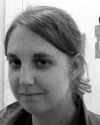- Autumn 2021
Syllabus Description:
CAPPP Program Description
The CAPPP Research Fellowship is designed to teach political science majors how to conduct original social science research. This Fall we will learn what it means to engage in social science reasoning; to identify and critique existing social science research; and to apply social science approaches to analyze information about politics. Our primary goals this quarter are 1) to develop an interesting and feasible research question, 2) to identify relevant data sources and 3) to develop an initial research design that will allow you to examine that question using scientific criteria. Meanwhile, we will also learn how to analyze these data using statistical research methods.
Required Material
Lisa Baglione. 2020. Writing a Research Paper in Political Science: A Practical Guide to Inquiry, Structure, and Methods, 4th Ed. CQ Press. [LB]
Christopher Howard. 2017. Thinking Like a Political Scientist: A Practical Guide to Research Methods. University of Chicago Press [CH]
Note: The texts are available through CQ, University of Chicago Press and other online retailers for prices ranging from $10-$30 each. Please talk to Ryan or Becca if you have trouble locating or purchasing any of these texts.
Preparing for In-Person Classes & Labs
We will be meeting in person class and lab sessions on Wed. from 2:30-4:20 in SAV 136. Please note that will be prepared to move to an online platform if university policy changes or new health/safety factors arise.
Face Coverings & Social Distancing
The health and safety of the University of Washington community are the institution’s priorities. Until otherwise stated, face coverings are required per UW COVID Face Covering Policy: indoors where other people are present and outdoors when keeping a 6-foot distance may not be possible. This includes all classrooms and buildings/public spaces on each of the three UW campuses.
If you physically can’t wear a mask, you choose not to wear a mask, your mask isn’t appropriate/sufficient, or if you aren’t wearing a mask properly (covering both your nose and mouth), you cannot be in the classroom and will be asked to leave. If you have a medical condition or health risk as outlined in the UW COVID face covering policy you may request an accommodation. Please contact Disability Resources for Students office before going to class at uwdrs@uw.edu.
Please review the UW Environmental & Safety policy for information regarding proper face coverings and compliance with social distancing protocols.
Your Physical & Mental Health
Your physical and psychological health takes precedence over everything that we are doing in class. Given this continued uncertainty about new covid-19 variants and shifting health/safety protocol, open communication with me and Ryan will be crucial. Please let me know ASAP if you are experiencing difficulties related to illness, financial challenges, family circumstances or any other hardship. We will make every attempt to make appropriate accommodations so that can succeed in the CAPPP program while prioritizing your physical, mental and emotional wellbeing.
Grading
Fall and Winter quarter grades register as independent study credits and are based on weekly assignments and quarter milestones that advance important components of your research project. Spring quarter grades count toward the POL S major and are evaluated on the basis of your final research project. All grades are calculated the 4.0 scale.
Learning Statistics in R
Throughout the quarter, we will learn to use a statistical software program called R. We will learn the basics in weekly lab sessions with Ryan beginning on October 6. There will be weekly assignments designed to teach you the skills that you’ll need in order to analyze and interpret your own data in Winter quarter. You should feel free to work together on these exercises.
Fall Quarter Agenda
At the end of the quarter (during finals week), you will turn in a final paper that includes 1) a research question that Ryan and I have approved; 2) a falsifiable hypothesis; 3) alternative rival hypothesis; 4) a review of the literature related to your question; 5) a preliminary research design (e.g., how you will test your hypothesis), and 6) identification of you data sources and/or a data collection plan. Everything that we do during Fall quarter is meant to advance these goals and help you to successfully complete this research design paper.
Religious Accommodations
Washington state law requires that UW develop a policy for accommodation of student absences or significant hardship due to reasons of faith or conscience, or for organized religious activities. The UW’s policy, including more information about how to request an accommodation, is available here. Accommodations must be requested within the first two weeks of this course using the Religious Accommodations Form.
Important deadlines
Oct 6- Preliminary research question
Oct 13 – Revised RQ & articles summaries
Oct 20 – Falsifiable theory & sample literature review
Oct 27 – Revised lit review & hypotheses, Swirl R practice exercise
Nov 3 – Data sources & measurement
Nov 10 - Alternative hypotheses
Nov 17 – R exercise
Nov 24 – R exercise
Dec 1 - Research design paper draft
Dec 8 – R exercise
December 15 – Final research design paper (see below for template)
